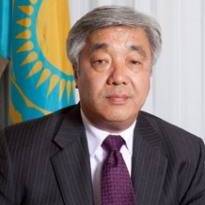(Journal Article) Since the beginning of the Syrian crisis, there have been intermittent hopes that Moscow might play a constructive diplomatic role in resolving it. But the focus on Russia has been deeply misleading. Russia, for reasons that have little to do with Syria itself, was never going to be part of the solution to the crisis – at least on terms that the West and the Syrian opposition could accept. Further, Russia’s centrality to international diplomacy on this issue and its seeming obstinacy expose deep flaws in post-Cold War Western doctrine on international intervention. Russia’s centrality when it comes to Syria is more a function of those flaws than anything else.
As the latest round of failed talks with the Russians – this time between UN/League of Arab States Envoy Lakhdar Brahimi and Russian Foreign Minister Sergei Lavrov in late December 2012 – conclusively demonstrate, Russia will not sign up for a diplomatic resolution to the crisis on Western or Arab terms. Senior Russian officials have made that clear for months, but some in the international community act as though they refuse to believe them.
This disbelief stems from a misunderstanding of the Russian position. The predominant focus has been on the ties that bind Russia to Assad's Syria, including military, military-industrial and intelligence-sharing. Journalists diligently produce stories on Russian arms sales to Syria and its naval facility at Tartus. A less noted, but more significant factor has been Russian anxieties about the displacement by Sunni Islamist governments of secular autocrats in Syria and other Arab countries since the Arab Spring began. Russia's immediate neighbourhood in the South Caucasus and Central Asia features a number of countries where such a scenario cannot be excluded, and there are over 20 million Russian Muslims, the majority of whom are Sunni and live in the North Caucasus, where Russia has fought two civil wars and continues to battle what is now called the Caucasus Emirate. Decision-makers in Moscow are quick to point out that the emirate and its predecessors were directly supported by entities in some of the Arab countries now leading the call for Assad's departure. […]
See the article | © Survival: Global Politics and Strategy
Samuel Charap, 'Russia, Syria and the Doctrine of Intervention', Survival: Global Politics and Strategy, vol. 55, no. 1, February-March 2013, pp. 35-41.










